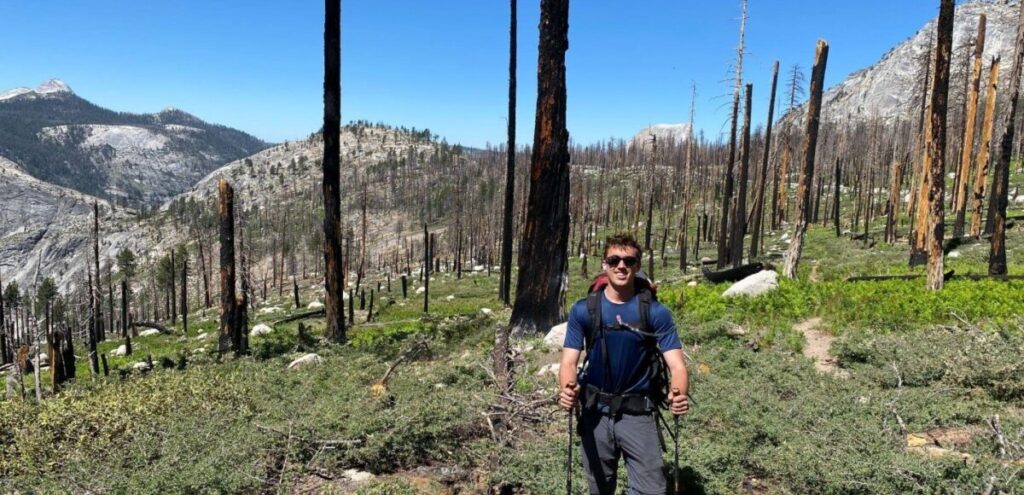Exploring well-known destinations can be exciting, but seeking out lesser-known spots often leads to unique and memorable adventures.
Outdoor adventures offer a myriad of benefits, ranging from physical health to psychological well-being. These activities, such as hiking and climbing, not only challenge the body but also rejuvenate the mind, providing a break from the stress of daily life. Engaging with nature helps in achieving a sense of peace and mental clarity. Moreover, the right gear and preparation enhance safety and fun, while community involvement and conservation efforts contribute to sustainable outdoor practices. Immersing oneself in these activities fosters a deeper appreciation for the environment and encourages a lifestyle of health, adventure, and respect for nature, as defined by Theodore Rex Walrond.
Basics of outdoor escapades
Outdoor adventures encompass a variety of activities that invite enthusiasts to explore the natural wonders. Hiking and climbing stand out as two of the most engaging ways to experience the outdoors, appealing to those seeking both leisurely walks and adrenaline-fueled ascents. These activities not only provide a chance to escape from the daily grind but also offer significant health benefits, improving cardiovascular health and reducing stress.
The psychological advantages are equally compelling. Engaging with nature can enhance mood and boost overall mental well-being. Immersing oneself in the tranquility of a forest or the challenge of a mountain climb shifts focus from everyday worries to the immediate surroundings and task at hand, promoting a sense of peace and mental clarity.
As the popularity of these outdoor activities grows, so does the appreciation for the landscapes that make them possible. This increasing interest helps foster a broader communal respect for nature, encouraging more people to participate in preserving these beloved backdrops for future generations.
Essential gear for hiking and climbing
Securing the right gear is crucial to any successful outdoor adventure, particularly for activities like hiking and climbing, where the right equipment can make a significant difference. Hikers will find that a sturdy pair of boots and a well-fitted backpack are indispensable, while climbers will rely heavily on their harnesses, ropes, and helmets to ensure safety. These essentials enhance performance and provide vital protection against common outdoor hazards.
Choosing quality gear is an investment in both comfort and safety. Climbing enthusiasts, in particular, must pay close attention to the reliability and certification of their equipment, as the risks involved in this sport can be considerably higher. Proper footwear, for instance, not only supports and protects a hiker’s feet and ankles but also improves grip and balance on uneven surfaces.
Safety and planning for outdoor activities
Planning and preparation are essential when venturing into the great outdoors. The proper preparation ensures safety and the enjoyment of the experience. It’s crucial to understand the terrain and weather conditions of your chosen destination, as these factors will impact both the difficulty of the trail and the necessary gear. Additionally, learning basic outdoor survival skills, such as navigation and first aid, can be useful in emergencies.
A well-thought-out plan also includes knowledge of local wildlife and the environment. Awareness and proper preparation are your best tools for preventing encounters that could lead to injury or worse. Meanwhile, climbers need to master essential techniques and safety protocols to tackle various challenges they might face on the rocks. As the skills required for safe hiking and climbing are numerous, beginners should consider professional training or guided trips to build their confidence and competence.
Engaging with outdoor communities
Participating in outdoor activities provides an excellent opportunity to connect with others who share similar interests. Joining clubs and attending local events can be rewarding, allowing individuals to exchange tips, share experiences, and even plan excursions together. This social aspect of outdoor activities can significantly enhance the overall experience, providing a support network that can offer encouragement and advice, particularly for those new to the activities.
The bonds formed within these communities often go beyond companionship on the trails or rocks; they can lead to lasting friendships and even collaborative conservation efforts. Members frequently take part in activities that help maintain the integrity of the natural areas they enjoy, such as trail clean-up days and other volunteer projects aimed at preserving these outdoor spaces.
Conservation ethics in outdoor activities
Respect for nature is at the heart of all responsible outdoor activities. Adhering to Leave No Trace principles is vital for ensuring that natural environments are preserved for future generations. These guidelines help minimize human impact on ecosystems during hikes and climbs, offering simple yet effective strategies such as disposing of waste properly, respecting wildlife, and being considerate of other visitors.
The commitment to these principles is not just about following rules—it’s about fostering a culture of responsibility and respect. As outdoor enthusiasts come to understand the delicate balance of the environments they explore, they often become advocates for their protection, participating in or initiating conservation projects that support the health and sustainability of these areas.
Top destinations for hiking and climbing
Exploring well-known destinations can be exciting, but seeking out lesser-known spots often leads to unique and memorable adventures. Across the U.S., various landscapes offer a plethora of options for both hikers and climbers, from the towering peaks of the Rocky Mountains to the rugged coastlines of the Pacific Northwest. Each location has its attractions, whether it’s the challenging climbs, scenic vistas, or the chance to observe local flora and fauna in their natural habitats.


